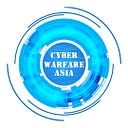Iran & Israel: Superpowers in Middle Eastern Cyberspace battlefield
The MENA region is witnessing a mass proliferation of cyber warfare. Cyberspace has become the preferred battlefield in the region as it provides state and non-state actors with an alternative to conventional warfare with plausible deniability and fewer military or civilian casualties. Iran and Israel have surfaced as key players in honing cyber capabilities, while countries like Egypt, Saudi, UAE and Qatar are still trying to build their cyber capabilities with the help of foreign firms.
Since there are no international legal norms that could govern the use of cyber warfare in the present, the disinformation campaigns have become weapons to avoid widespread criticism and potential sanctions.
Few years back, the U.S. National Security Agency Former Chief General, Keith Alexander in an interview with the British newspaper — Daily Telegraph said that both Iran and Israel are among the countries with world’s best cyber warfare capabilities.
Iran and Israel would herald a new phase in cyberwarfare. Israel, the technology-driven “Start-up Nation,” is a world-leading cyberpower with vast government resources invested in digital security and cyberwarfare capabilities.
The Islamic Republic developed its cyber capabilities in 2011, after the Stuxnet computer virus, which was believed to be an American-Israeli creation, destroyed thousands of centrifuges involved in Iran’s contested nuclear program.
It was speculated that Iran was behind the 2012 Stuxnet virus spread, which had hit Saudi Arabian Oil Co. — Saudi Aramco, and Qatari natural gas producer — RasGas. The virus deleted hard drives and even displayed a burning picture of an American flag on computer screens. In response, Saudi Aramco had to shut down its network and destroyed over 30,000 computers.
Unlike Iran and Israel, the countries like UAE, Saudi, Qatar are still not able to meet national protection and defence of the country on their own. They lack in portraying the same aggresssion on the regional front. For that, they rely on foreign associations like the US, the UK, Turkey, and Israel. The UK Defence Giant, BAE Systems have made large-scale sales of sophisticated surveillance technology to the UAE, Saudi Arabia, Qatar, Oman, Morocco and Algeria.
Though these countries are trying hard to cope up with Iran’s capabilities, it might take a longer span of time given the current state of affairs in the region.
For instance, both UAE and Saudi Arabia have taken help from Israeli Firm NSO group and German Firm Gamma International to develop spyware against its rival. On the other hand, Qatar also took help from the US consulting firm, Global Risk Advisors (GRA) to hack emails of a Republican Fundraiser — Elliot Broidy.
Recently, Qatar signed an agreement with Italy-based firm Leonardo for providing cyber training to Qatar Computing Research Institute (QCRI). Another, Italian firm called Hacking Team had provided surveillance technology tools to the governments of Egypt, Qatar, and Saudi. The aim throughout has been to strengthen the resilience of digital infrastructure against potential cyber attacks.
